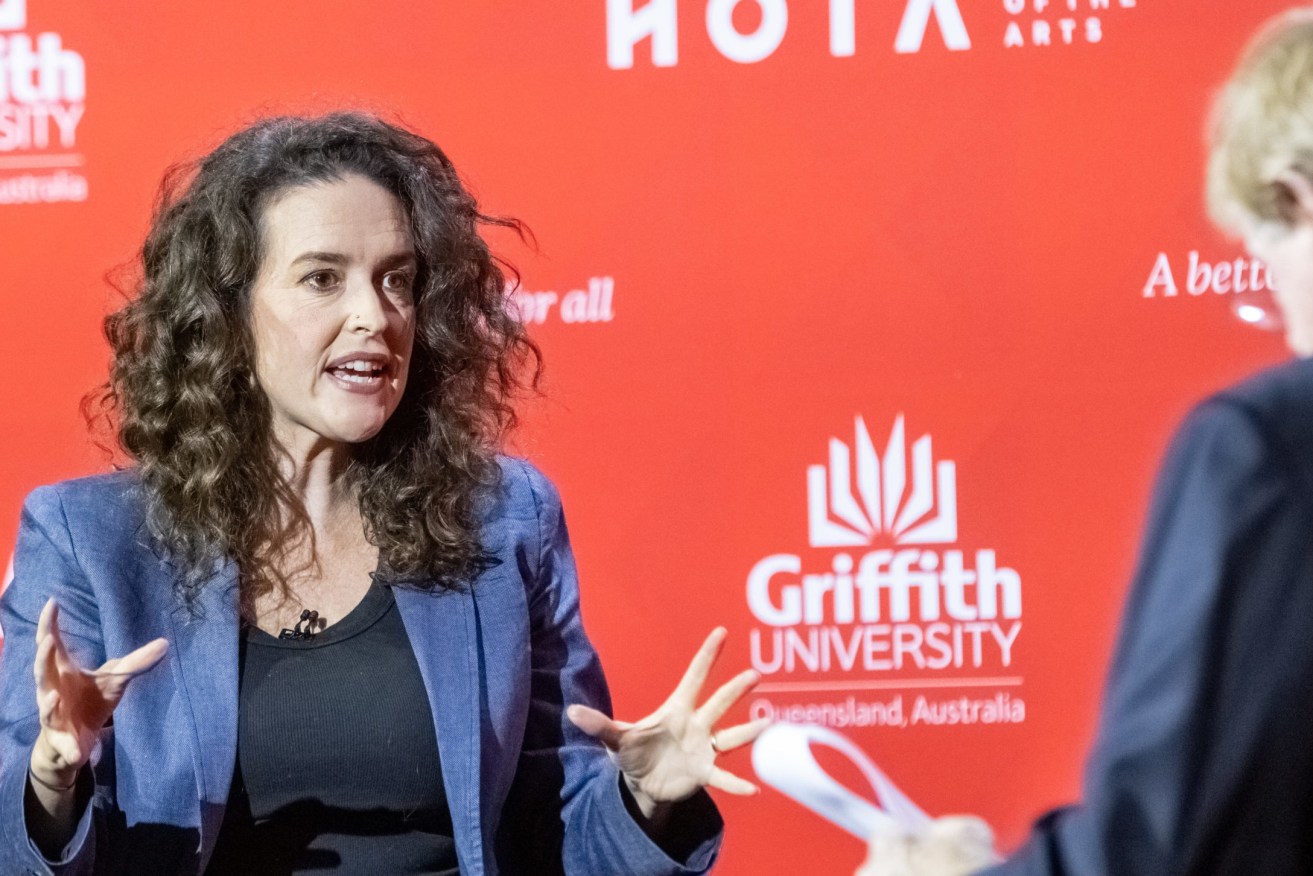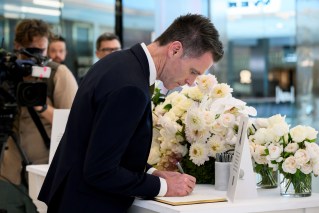Why police are the worst option to handle Australia’s domestic violence crisis
In the weeks before her death, Gold Coast mother of three Kelly Wilkinson was in contact with police and support services almost daily pleading for help.


Jess Hill is interviews by Kerry O'Brien in the Griffith University In Conversation series (Pic: Griffith University)
Then in the early hours of Tuesday, April 20, she was allegedly doused in petrol and burned to death by her former partner Brian Earl Johnston in the backyard of her home.
Police have admitted the system that aimed to protect Wilkinson failed.
The vital question, now the focus of state and national taskforces and women’s safety plans aiming to cut Australia’s shocking number of domestic and family violence cases like Wilkinson’s, is how to make it work.
According to investigative journalist Jess Hill who has been researching and writing exclusively on Australia’s domestic and family violence crisis for the past six years, momentum is growing for the core of the system to change.
Rather than introducing more criminal offences, including coercion, being proposed by Queensland’s independent taskforce into women’s safety and justice, the entire model of policing horrific rates of domestic violence needs to be overhauled, she said.
“The need to reform policing and change the nature of policing is extreme and urgent,” Hill said.
According to Hill, the nation’s response to domestic and family violence has been so inadequate and ineffective that it should be removed from traditional policing and addressed instead by a new special dedicated force.
“We have a situation in which only 20 per cent of victims who are experiencing abuse ever call police. It’s a minority,” Hill told Griffith University’s In Conversation series held at the Gold Coast’s Home of the Arts Thursday evening.
“More women would call police if they felt they could trust the systems that would then step in to respond, including the police themselves.”
She said it was clear a different model was required such as a specialist force mandated to prevent and respond to gendered violence.
“The questions that arise are: is policing, as it is currently structured, even fit for this purpose? How can we offer protection, especially in these cases that show high risk of homicide? How can we do that reliably? And can we do it with the current system?
“The answer is not just to take women police out of the police force and put them in a station. The answer is to actually create a force that has a totally separate and different culture.”
Hill, whose 2019 book See What You Made Me Do on domestic violence has just been released as an SBS documentary of the same name, said the police and justice system did not understand or respond adequately to victims before the “pointy end” of domestic violence incidents.
“Our justice system has been built around policing incidents. So, the motivation for police to have that education around coercive control has not really been reflected in their job description – that is to go to an incident, find out who is at fault, and decide whether to lay charges,” she said.
“Because we’ve had this incident-based system, it has to a large extent concealed the true nature of what the vast majority of people who seek help, either from domestic violence services or police, are experiencing.
“And what that also means is that when police have traditionally turned up at an incident, there is so much that doesn’t make sense to them.”
She said victims who have been subjected to coercive control and domestic abuse often go through a process of leaving “that is like a game of snakes and ladders”.
“Part of that is establishing trust in the system before they jump into whatever safety net is being held out to them,” she said.
“Until they (police) understand coercive control, until they understand why victims make certain choices, until they understand what their role is in providing safety, until they respond with a protective approach, police will continue to fail in responding to this crisis.”
Latest statistics show Australian police attend a call of domestic violence every two minutes.
Queensland police figures show in the South Brisbane Police District this year alone there have been, on average, 29 domestic and family violence incidents every day.
On average, one woman a week in Australia is killed by a current or former partner.
An independent taskforce was set up by the Queensland Government following a series of murders and attacks on women and children and almost a year after Brisbane mother Hannah Clarke and her three children were murdered by her estranged husband. This week it released 13 proposals to address domestic violence.
Chaired by former president of the Queensland Court of Appeal, Justice Margaret McMurdo, it received 270 submissions and was tasked with considering how to legislate against coercive control.
The Queensland Women’s Safety and Justice Taskforce discussion paper listed 13 reforms including possible new criminal offences including coercive control, domestic violence and cruelty.
The paper is open for consultation until July 9.












